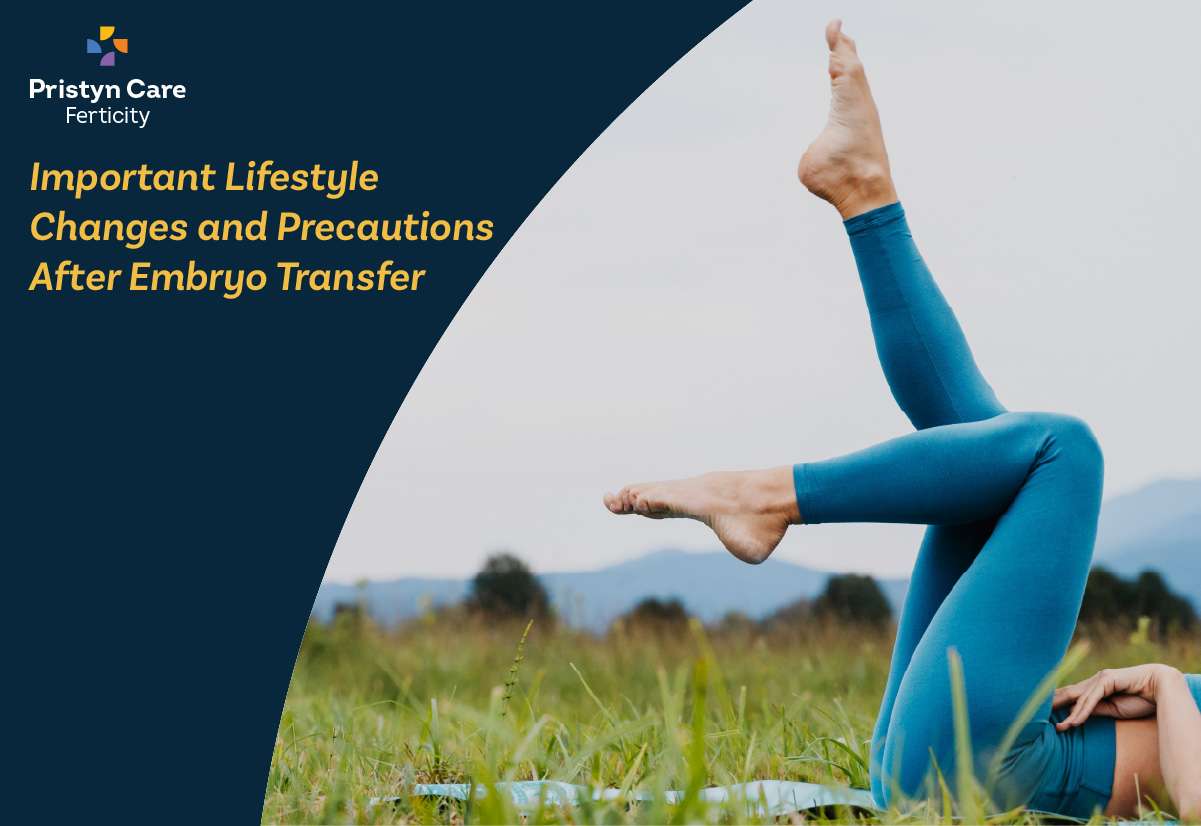The days after your embryo transfer mark a crucial period of practising hope and patience. While you’ve put in all your efforts to get to this stage, your next steps can make a big difference. Prioritizing self-care, both physical and emotional, is of utmost importance. At our IVF Centre in India, we support you with the right medical advice after an embryo transfer to have a higher chance of successful pregnancy.
Following are the top important lifestyle changes and precautions to follow after embryo transfer:
Refrain from rigorous physical activities
Allow your body to adjust after embryo transfer. This involves avoiding strenuous or heavy physical activities like running, lifting large things, or any other thing that exerts strain on your body. To give the embryo time to adjust, it is important to keep the surroundings serene and unhurried. Go for mild walks or stretches instead of your usual workout. Be kinder to your body instead of pushing it at this point.
Relax and treat yourself for a few days
Now is the right time to slow down and permit yourself to relax. Whether it’s watching your favourite show, reading a book, or just resting, take these few days to unwind. Stress can affect your body in subtle ways, so making time to relax isn’t just for your mental well-being—it’s essential for the success of the embryo transfer. Think of it as nurturing both yourself and your future baby.
Keep up with a nutritious diet
Start nourishing your body as if you’re on the pregnancy journey. Focus on whole, unprocessed foods—swap out processed snacks for wholesome carbs like whole grains and fruits. Aim to include oily fish like salmon at least twice a week, and don’t forget your protein sources, whether it’s lean meats or beans. Also, consider taking a daily multivitamin with folic acid to support your health. If all goes well, you’ll be nurturing a little one for the next nine months. Adopt the healthy eating habits recommended for expectant mothers. Fill your plate with colourful fruits and veggies, and prioritize foods rich in calcium, iron, and B vitamins. Even with a balanced diet, a prenatal vitamin can help ensure you’re getting everything you and your baby need for a healthy start.
Take doctor prescribed vitamin supplements on time
It’s likely that your doctor recommended certain vitamins or supplements to aid your body in going through this phase. Prenatal vitamins, vitamin D, and folic acid are all necessary for a properly developing embryo. As instructed, make sure to take them on a regular basis. Although it might not seem like a huge problem to forget a dose, consistency is essential. See your doctor before taking any other supplements if you are unsure about them.
Be well hydrated
The simplest yet the most important tip is being well hydrated. Drinking enough water ensures that your body functions optimally and maintains good reproductive health as well. Make it a habit to drink 8-10 glasses of water a day, and limit sugary or caffeinated/aerated drinks. Water helps with everything, from digestion to circulation. so don’t overlook this basic but crucial step in your post-transfer care.
De-stress is a must
It’s normal to feel a bit overwhelmed at this stage. Keeping stress in check is really important since high stress can mess with your hormones and affect the embryo’s chances of implanting.
Find what helps you relax—maybe it’s curling up with a good show, trying out some light yoga, or just taking a few deep breaths. And don’t forget to chat with someone about how you’re feeling; whether it’s a friend, partner, or therapist, sharing your thoughts can really lighten the load. Taking care of your mental health is just as important as everything else you’re doing right now. You’re not alone in this!
Sex too soon is a no
After an embryo transfer, you have to take a short pause on sex for a little while. Sexual activity too soon may result in uterine contractions that can interfere with the implantation process. Most doctors recommend waiting at least two weeks after the transfer before resuming. Follow your doctor’s guidance on when it’s safe to reconnect, and remember that this temporary break is a small but important part of the bigger picture.
Watch out for alarming signs
Some mild cramping or spotting is normal, but bear in mind what symptoms should raise red flags. Beware of heavy bleeding, intense abdominal pain, or any sharp, unusual symptoms. If anything feels off, reach out to your fertility specialist without delay. It’s better to be cautious and get medical advice if you’re unsure. The more proactive approach you take to a potential issue, the better your chances for a positive outcome.
Embryo transfer is an exciting phase in your IVF journey! It’s non-negotiable to stick to these aforementioned tips and precautions to see desired results.
At Ferticity IVF, our team of renowned fertility specialists support you through this important process. With a wealth of experience—having helped over 40,000 babies come into the world through advanced reproductive technology—we keep striving with compassionate care in a welcoming environment.
Remember to listen to your body, prioritize your well-being, and trust the process. You’re closer to achieving your dream of parenthood than you think, and we’re here to walk with you every step of the way! Book your appointment at our IVF centre in India.

